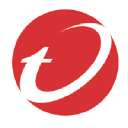Best Encryption Software and Tools
1. Microsoft BitLocker
- User-friendly interface
- Strong encryption with AES algorithm
- Seamless integration with Windows OS

Microsoft BitLocker is a robust encryption tool that offers seamless integration with Windows OS, advanced encryption capabilities, and user-friendly interface, making it an excellent choice for securing sensitive data.
With strong encryption using the AES algorithm, BitLocker provides a comprehensive solution for businesses looking to enhance their data security.
2. VeraCrypt
- Strong encryption capabilities
- Compatible with Windows, Linux, and Mac
- Free to use
- Ability to encrypt entire system partitions

VeraCrypt is a free open-source disk encryption software with strong security features, compatible with Windows, Linux, and Mac. It offers the ability to encrypt entire system partitions, providing robust data protection for businesses and individuals.
3. AxCrypt Premium
- Strong 128-bit or 256-bit file encryption
- Automatic secure file integration with Dropbox, Google Drive, and OneDrive
- Supports multiple languages for global use

AxCrypt Premium is a robust file encryption solution offering strong 128-bit or 256-bit encryption, seamless integration with popular cloud storage services, and multilingual support. It provides businesses and independent professionals with the tools they need to secure and manage sensitive files effectively.
4. Trend Micro Endpoint Encryption
- User-friendly interface
- Offers whole-disk encryption of files and folders
- Extends to user-owned devices

Protect your confidential data and prevent costly data breaches with Trend Micro Endpoint Encryption. This comprehensive solution offers enterprise-wide full disk, file/folder, and removable media encryption, along with a user-friendly interface and transparent key management.
Ensure that your data remains secure, even as mobile computing devices and organizational needs evolve, with the deployment of Trend Micro Endpoint Encryption.
5. NordLocker
- Robust encryption for secure file storage
- User-friendly interface for easy access and management
- Flexible pricing options to suit different needs

NordLocker is a cutting-edge digital document storage solution that offers robust encryption, user-friendly interface, and flexible pricing options, making it the go-to choice for individuals and businesses seeking secure file storage.
With NordLocker, you can protect and manage your digital documents with ease, ensuring peace of mind and seamless access to your files across various devices.
6. Boxcryptor
- Seamless encryption for 30+ cloud providers
- Available on Windows, Mac, Android, and iOS
- Ideal for businesses and teams
- User-friendly interface

Boxcryptor is a leading cloud encryption software that offers seamless integration with over 30 cloud providers. It provides robust security features suitable for businesses and individuals, ensuring data privacy and secure sharing across multiple platforms.
With its user-friendly interface and top-notch encryption capabilities, Boxcryptor is the ideal choice for secure cloud data management and sharing.
7. Advanced Encryption Package
- Integrates nicely with Windows Explorer
- Strong and proven encryption algorithms
- Easy to use, suitable for novices

Advanced Encryption Package 2022 is an award-winning, easy-to-use file encryption software for Windows 11 and Windows 10. It integrates nicely with Windows Explorer, offers strong and proven encryption algorithms, and is suitable for novice users.
FAQ
What are the best practices for selecting encryption software and tools?
When selecting encryption software and tools, it is crucial to consider the specific needs and security requirements of your organization. You should evaluate the level of encryption offered, ease of implementation, compatibility with your existing systems, and ongoing support and updates.
- Ensure that the software offers robust encryption algorithms such as AES-256, RSA, or ECC.
- Look for tools that provide features like key management, secure file sharing, and data masking.
- Consider the scalability and flexibility of the software to accommodate future needs.
By thoroughly assessing these factors, you can make an informed decision on the best encryption software and tools for your IT environment.
How can encryption software enhance data security for businesses?
Encryption software plays a pivotal role in fortifying data security for businesses by safeguarding sensitive information from unauthorized access or theft. Through advanced cryptographic techniques, encryption software converts data into an unreadable format, rendering it inaccessible to unauthorized individuals. This ensures that even if a security breach occurs, the stolen data remains indecipherable. Additionally, encryption contributes to regulatory compliance, promotes customer trust, and protects intellectual property, providing comprehensive security for businesses.
What factors should be considered while implementing encryption tools for a network infrastructure?
Implementing encryption tools within a network infrastructure necessitates careful consideration of various factors to ensure seamless integration and optimal performance. It is essential to evaluate the compatibility of the encryption tools with existing network protocols and configurations. Additionally, assessing the impact on network speed and latency, managing encryption keys, and maintaining compliance with industry standards are critical aspects to address during implementation. By meticulously addressing these factors, businesses can deploy encryption tools effectively without compromising network functionality.

FAQ
When selecting encryption software and tools, it is crucial to consider the specific needs and security requirements of your organization. You should evaluate the level of encryption offered, ease of implementation, compatibility with your existing systems, and ongoing support and updates.
- Ensure that the software offers robust encryption algorithms such as AES-256, RSA, or ECC.
- Look for tools that provide features like key management, secure file sharing, and data masking.
- Consider the scalability and flexibility of the software to accommodate future needs.
By thoroughly assessing these factors, you can make an informed decision on the best encryption software and tools for your IT environment.
Encryption software plays a pivotal role in fortifying data security for businesses by safeguarding sensitive information from unauthorized access or theft. Through advanced cryptographic techniques, encryption software converts data into an unreadable format, rendering it inaccessible to unauthorized individuals. This ensures that even if a security breach occurs, the stolen data remains indecipherable. Additionally, encryption contributes to regulatory compliance, promotes customer trust, and protects intellectual property, providing comprehensive security for businesses.
Implementing encryption tools within a network infrastructure necessitates careful consideration of various factors to ensure seamless integration and optimal performance. It is essential to evaluate the compatibility of the encryption tools with existing network protocols and configurations. Additionally, assessing the impact on network speed and latency, managing encryption keys, and maintaining compliance with industry standards are critical aspects to address during implementation. By meticulously addressing these factors, businesses can deploy encryption tools effectively without compromising network functionality.